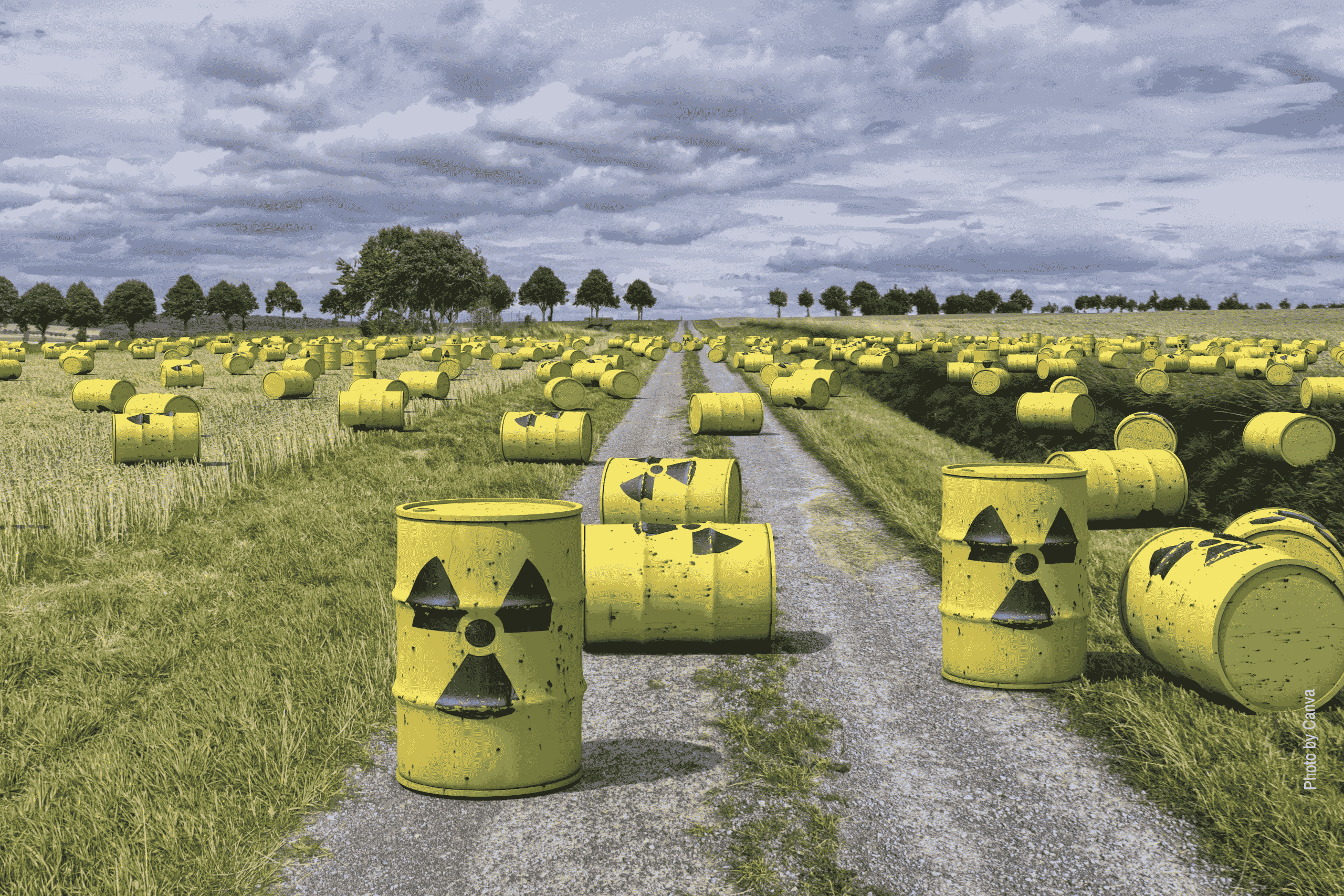Mid-August 2024 saw the publication of a new study about the search for a depository for highly reactive nuclear waste in Germany. According to the study, the process originally set to end in 2031 will continue until 2074 if we continue along our current path; and this is only possible under the most favourable conditions. The study was commissioned by the responsible federal office for nuclear waste (Bundesamt für die Sicherheit der nuklearen Entsorgung, BASE) at the Öko-Institut in Freiburg.
The FRFG is calling for a final decision on the location to be made by 2031 at the very latest. ‘It would be absolutely irresponsible for Germany to leave its nuclear waste lying around in interim storage facilities any longer. Over 1,000 containers of radioactive nuclear waste are currently stored near twelve decommissioned nuclear power plants. However, concrete, barbed wire, and security guards cannot offer anywhere near the same level of protection as deep geological depositories. Especially in times of war and terrorist attacks, it is highly problematic that nuclear waste is currently stored above ground!’ says FRFG managing director Jörg Tremmel.
In FRFG’s view, a massive delay in the selection process would mean choosing the worst of two bad alternatives. The nuclear waste produced in this country, i.e. the legacy of six decades of commercial operation of nuclear power plants in Germany, is highly dangerous for both people and the environment. Of course, Germany must take the necessary care when selecting a site; however, this was also the case in Finland, Switzerland and other European countries which have already successfully completed this process within a reasonable time period. In terms of current and future safety, the German depository is one of the most urgent construction projects of our time. The proposed delay is just one, two or five years, as with other construction projects; rather, there would be a delay of 50 years if the current site selection act (Standortauswahlgesetz) is retained!
FRFG board member Christopher Isensee points out another problem: ‘In light of the new study on the search for a final storage site, the question arises anew as to how the nuclear waste in the dilapidated Asse II mine should be dealt with. According to the Federal Company for Final Disposal (Bundesgesellschaft für Endlagerung, BGE), the search for a final location for the nuclear waste stored there should only take place after the search for a final depository is complete. Until then, the waste is to be stored in the dilapidated mine, although the BGE also emphasises that an emergency – massive water ingress into the storage chambers – could occur at any time. This situation has already worsened since April 2024. Since then, large quantities of lime water has been entering the mine in an uncontrolled manner.’
Because nuclear waste is a question of intergenerational justice, in 2022 the FRFG organised an in-depth Walkshop (see here) with site visits to the Asse II and Konrad mines. It was learnt that the procedure takes so long because a large number of potential regions (54% of the entire federal territory) are being examined and also because bureaucratic hurdles lead to an extreme slowdown in the process.
The FRFG is now calling for a revision of the site selection act (Standortauswahlgesetz), which stipulates that a site must be found by 2031 in Section 1 (5) sentence 2. The FRFG proposes that we must replace the German site selection act, which clearly fails to meet its target date. A new law could be modelled on the Swiss process for creating a ‘deep geological depository’, which began early on with the in-depth investigation of individual areas.
Of course, it is obvious that the selection of a storage site for radioactive waste cannot be rushed. Such an accusation could hardly be made of the neighbouring country Switzerland, however, which has been searching and examining for 14 years. After Switzerland’s final depository in Windlach (just two kilometres south of the German border), has been built in a layer of clay deep underground, Switzerland will have solved its current problem with above-ground interim storage facilities like the one in Würenlingen. The danger of radiation escaping from Swiss interim storage facilities and contaminating people and the environment will then have been overcome.
We are undoubtedly dealing with a cross-generational problem that must continue to be discussed with broad public participation and scientific support. Greater attention must be paid to the dangers of a massive delay in the decision on a final depository. We must not shy away from taking a critical look at the structures, competences, and working methods of the authorities and companies involved.




